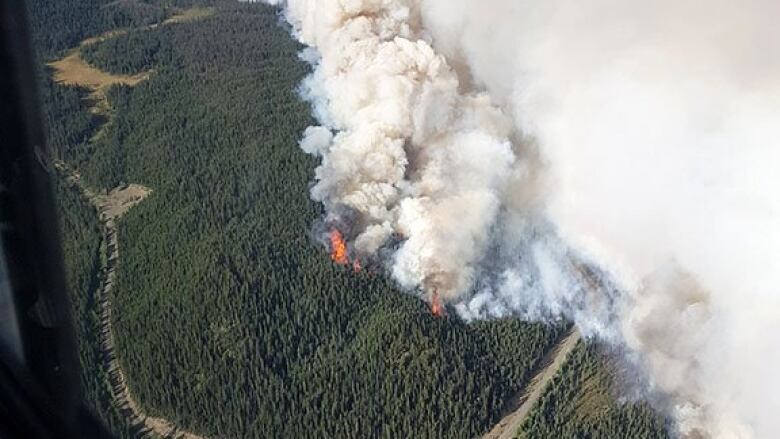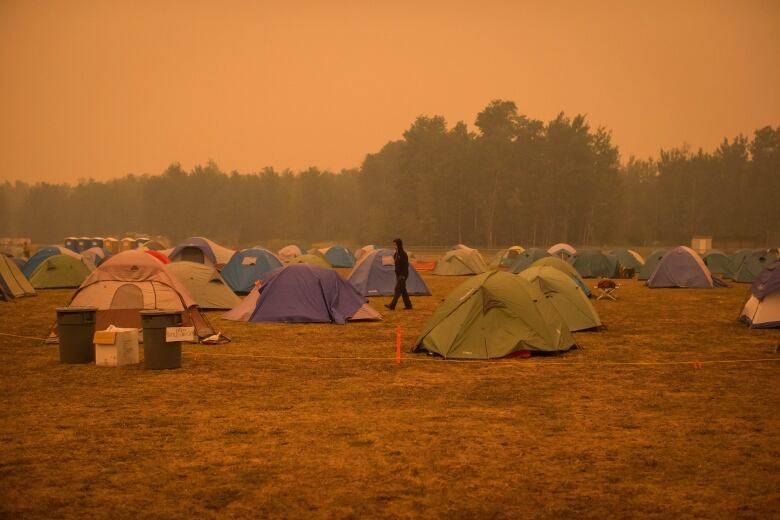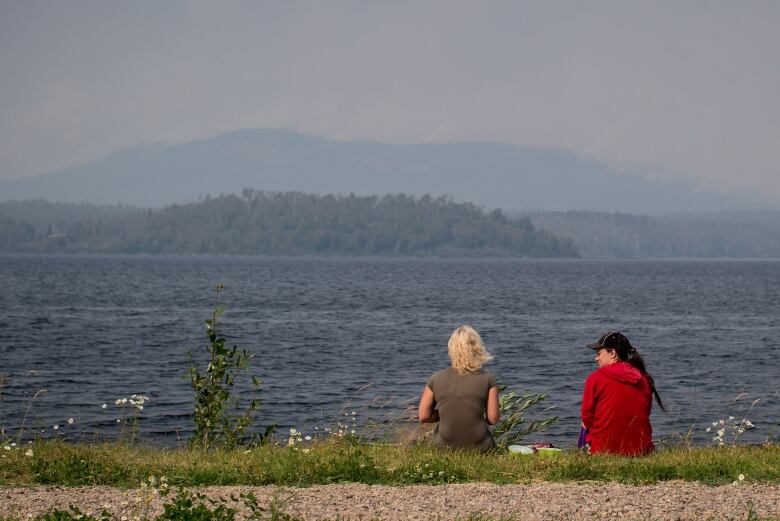Change in the weather expected for fire-ridden B.C. this weekend
'Most areas of B.C. can expect at least some precipitation,' fire information officer says

The B.C. Wildfire Service said the forest fire situation across the province remaineddire Thursday, though a change in the weather is expected this weekend and into next week.
Most areas around B.C. have at least a little rain in the forecast for the next few days, according to officials.
Fire information officer Ryan Turcotsaid the province needs heavy rain for a long time to make a dent in the fire situationbut any bit of moisture can help.

"Even if we do see a little bit of precipitation overthe next week, that should at least bring some relief in terms of taming the behaviour on some of the large wildfires we're responding to," he saidThursday.
"Of course, weather models are constantly changing their minds on precipitation, but the general expectation between [Thursday]and Tuesday:most areas of B.C. can expect at least some precipitation."
Turcot said the forecast comes as the province moves from dry, clear weather into a cooler, more unstable weather pattern
"The caveat is always, when we do see these more unstable conditions, it can often mean increased potential for lightning activity and gusty winds," he added.
Aggressive fires in northern B.C.
The central-northern corridor between Smithers and Prince George is still the biggest area of concern for the wildfire service given the size and intensity of fires burning there.
Crews on the Nadina Lake and Verdun Mountain #BCwildfire observed aggressive fire behaviour yesterday with winds gusting up to 40km/hr. The Nadina Lake fire is currently 78,331 hectares in size and the Verdun Mountain fire is currently 17,326 hectares in size. (1/3) pic.twitter.com/Nb2ZFKQtIp
—@BCGovFireInfoIn particular, the officer said the Verdun and Nadina Lake fires are showing "exceptionally extreme fire behaviour" and will likely continue to be a challenge for firefighters.
Several smaller fires merged with the larger Alkali Lake wildfire on Wednesday, creating asingle100,000-hectare blaze.(Though, Turcot said, smoky skies means perimeter mapping may not be 100 per cent accurate.)

Other fires around the province prompted evacuation orders that afternoon, including for homes and cottages threatened by an aggressive blaze east ofPemberton.
Homes lost
On Wednesday, leaders in the tiny community of Lower Post near the Yukon border confirmed three structures were lost as a 50-square-kilometre wildfire ran through the middle of the village.
Area residents who defied evacuation orders saidanother three propertiesburned down Wednesday night nearTakysieLake west of Prince George.
More than two dozen homes have also been burned in Telegraph Creek, B.C., this year.
Nearly 5,000 people are underevacuationorders with more than 22,000 on evacuation alert across the province. Around 13,000 livestock are under those orders and alerts as well.
Dense smoke from the fires continued to prompt air quality alerts across most ofB.C., though Metro Vancouver and the Fraser Valley had begun to clear as ocean air movedonshore Thursday morning.
More fire information:
- B.C. remains in a provincewide state of emergency. There are more than 560 wildfires burning across the province.
- Sixteen new fires started Wednesday. Of all the fires in the province, 56 are fires of note.
- The B.C. Wildfire Service has spent more than $282 million fighting this year's wildfires.
- Wildfire smoke over Western Canada is visible fromNASA'sDSCOVRsatellite which is about 1.6 million kilometres away.
B.C. wildfire map:
B.C. evacuation map:
With files from Jon Hernandez, Rhianna Schmunk and the Canadian Press












_(720p).jpg)


 OFFICIAL HD MUSIC VIDEO.jpg)
.jpg)



























































































